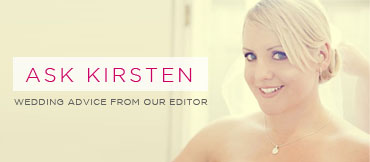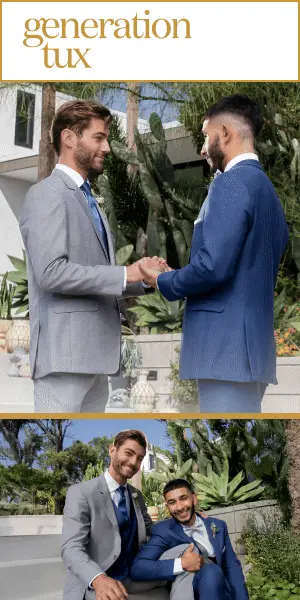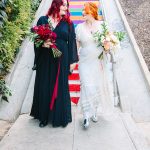
As we approach our engagement party where our families will meet our partner for the first time, as well as each other, we are feeling really nervous that they will be uncomfortable and confused.
Q My partner and I are throwing an engagement party in a month and feel completely unnerved by our situation. Not only have our families not met, they don’t know about how either of us identifies. Both my partner and I are not completely out to our families. We both identify as queer, which is a term that feels a bit too radical for our traditional background.
My partner is male identified, female bodied, and will not ever have surgery or take hormones, and does not identify as trans but is not out as male to his family. Furthermore and to make things more complicated we both don’t go by our birth names with each other or our friends.
As we approach our engagement party where our families will meet our partner for the first time, as well as each other, we are feeling really nervous that they will be uncomfortable and confused. We don’t know what to do about the situation. Should we make a video and essentially come out to them? Should we act as if there is no issue, even though they will refer to us by names we don’t identify and a gender pronoun that is invalidating? How can we be ourselves and seen for who we are in this without being offensive, or go Queer Politics 101 on them? It feels so complicated; any advice would be much appreciated. — Kay
Dear Kay,
It’s great that you are thinking ahead to the engagement party and how everyone will react to all of these surprises: the names by which you want to be addressed, the gender you identify with and that you’re queer. It’s a lot to take in all at once, especially under the scrutiny of your family of choice: your friends. The purpose of the engagement party is to celebrate, not educate. I imagine you want whoever is in attendance to enjoy themselves at this festive occasion, instead of trying to follow what is happening, leading to confusion and possibly very hurt feelings.
They’ll be hurt not because what they’ve learned about you, but because they didn’t know it beforehand.
As hard as it might be, I think you need to tell all family members in the dark about all of these parts of who you are as individuals in advance of the party. The only way that I recommend a video is if you have family coming from different geographical regions than your own. I am discouraging the video because it’s not personal enough and it doesn’t afford your family the opportunity to ask questions. It’s out of love that they will want to better understand what you’re saying. Some might not have ever heard of the term “queer” outside of it being a derogatory, hate-filled insult, and not know that it’s been reclaimed as a term of pride. Radical activists in the 1990s especially deployed “queer” to signify empowerment and a sense of unity against the oppressive heteronormative sex/gender system in America.
This conversation is best to be had in person. It can be done in a group setting for convenience. And it’s certainly best to have the conversation with as many relatives as you can, rather than hoping the message can get passed along by the more-than-eager gossiping family members we all have. It would be like the game “Telephone,” and I quiver imagining how everything you’re telling me will get lost in translation as Aunt Betty tries to explain to Great Grandpa what it means that your partner identifies as a man but isn’t getting gender-reassignment surgery and wants him to call him by a male name.
As long as it’s taken you and your partner to arrive at the deep level of understanding of who you are and how you identify, it will take your family some time to get used to it, too. And they deserve to be equipped with the knowledge and your trust that they can adjust to it before the wedding festivities get underway (or at least attempt to start).
If you are going to make a video, make yourselves as open to questions as possible. A live video or Skype chat, offer to answer questions on phone, email, via letters … whatever it takes to enable your family to be able to fully support and understand you as individuals and as a couple.
Good luck, let me know how it goes, and send me some wedding pictures!
Kirsten Ott Palladino is the co-founder and editor in chief ofEqually Wed, the world’s leading gay, lesbian and allied wedding and honeymoon online magazine. Follow her on Twitter. Connect with her on Facebook. Write her with your gay wedding questions. If she can’t answer it, she’ll find another expert who can!
MOST VIEWED STORIES
- Tanaine and Daniella’s Classic Black and White Atlanta Wedding
- Frankie and Ryan’s Romantic San Francisco City Hall Wedding
- An At-Home Love Story in Decatur, GA: Amy and Britt’s Lifestyle Engagement Session
- Beyond the Bread: Creative and Inclusive Gluten-Free Wedding Food Ideas
- Ashley and Stephanie’s Cozy Maine Mountain Wedding at Sunday River






















